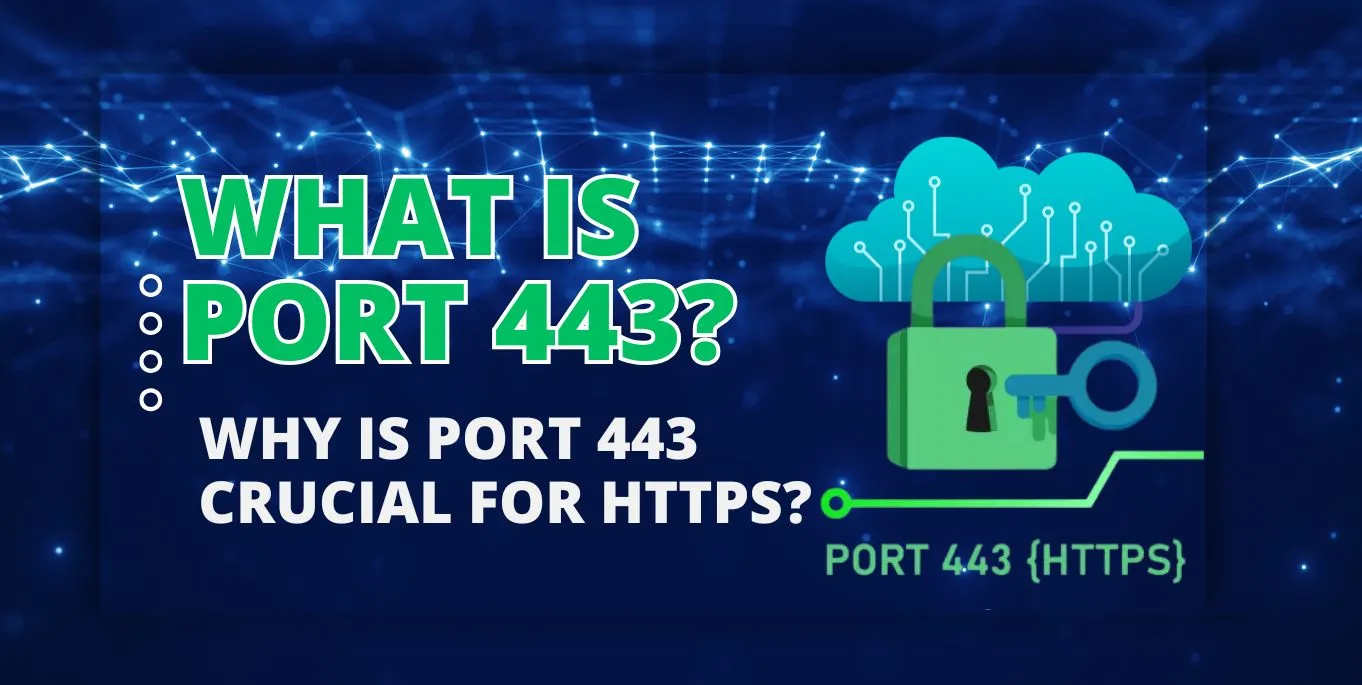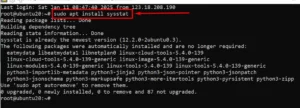In today’s digital age, online safety and information security are top priorities for most users. Concerns about personal data being stolen, breached, or accessed without authorization are rising. To address these issues, many security techniques and best practices have been developed. Among them, Port 443 plays a pivotal role as a secure bridge connecting users and servers. Let’s dive VPSWindows into the details of what Port 443 is and why it is vital for HTTPS.
Understanding Port 443 in HTTPS
Port 443 is one of the most critical ports in network communication, serving a key function in the HTTPS protocol.
Similar to a security lock for a house, Port 443 safeguards personal data when users browse the internet. When a user sends a request to a server via Port 443, all data is encrypted before transmission, ensuring only authorized parties with the decryption key can access the information.

Key Features of Port 443:
- Data Encryption: Port 443 utilizes SSL/TLS protocols to encrypt data during transmission, ensuring sensitive information like account details and passwords remain secure from third-party interference.
- Identity Verification: Websites using Port 443 typically require SSL/TLS certificates, verifying that users are connecting to the intended and authentic website.
- Enhanced Trust and Credibility: Websites that implement Port 443 convey professionalism and security, earning user trust.
- Firewall Compatibility: Port 443 is often allowed through firewalls, ensuring secure connectivity even in networks with strict controls.
Port 443 is not merely a standard network port. It is a vital component of modern cybersecurity, essential in safeguarding the ever-growing volume of sensitive online transactions and data exchanges.
Port 443 and HTTPS Protocol
When discussing Port 443, its role in the HTTPS (Hypertext Transfer Protocol Secure) protocol cannot be overlooked. It is the standard port for HTTPS, ensuring that all sensitive data transmitted is secure. HTTPS, essentially a combination of HTTP and SSL/TLS, provides advanced encryption and security features.
The Importance of Port 443 in Data Security
Port 443 addresses the rising need for security in online services via the HTTPS protocol, offering significant benefits for both users and service providers.
Core Benefits:
- Data Encryption: SSL/TLS encrypts all sensitive information, making it unreadable to malicious actors, even during interception.
- Improved Trustworthiness: Most major websites today have shifted from HTTP to HTTPS using Port 443, which reassures users and enhances a site’s reputation.
- Reduced Data Theft Risks: Unlike insecure connections, Port 443 ensures robust protection for user data against potential cyber threats.
- Authentication Support: Port 443 aids in verifying identities, shielding users from fraudulent or phishing websites.
Port 443 is a critical element of cybersecurity, ensuring data integrity and user safety in the modern digital landscape.
Why is Port 443 the Default Port for HTTPS?
The designation of Port 443 as the default for HTTPS stems from several key factors. Firstly, it enables encrypted connections, safeguarding transmitted information. For high-security applications like online banking, Port 443 is indispensable.

Key Reasons Behind the Default Status:
- HTTPS Evolution: Since its inception, HTTPS adopted Port 443 as the optimal pathway for secure web traffic, becoming a symbol of online security.
- Safer Digital Space: With the rise of cyber threats, Port 443 creates a more secure environment, especially as non-encrypted HTTP websites lose credibility.
- Versatile Applications: Beyond HTTPS, Port 443 supports various secure services, ensuring user safety even on untrusted networks.
Applications of Port 443
Beyond its primary role in HTTPS, Port 443 has numerous applications in security and data management.
Popular Use Cases:
- Secure VPN (Virtual Private Network): Port 443 facilitates safe VPN connections, protecting user data while browsing on public networks.
- Encrypted Email Transmission: Many email services rely on Port 443 to securely transmit sensitive messages between servers.
- WebSocket Secure (WSS): Enables real-time, secure web communication with high-level data encryption.
Port 443’s versatility lies in its encryption capabilities, ensuring user data remains safe across various online activities.
Comparing Port 443 and Port 80
Port 443 and Port 80 are often discussed together in networking conversations. Here’s a brief comparison:
- Protocol: HTTP
- Data Encryption: No
- Security: Vulnerable to eavesdropping
- Protocol: HTTPS
- Data Encryption: Yes (SSL/TLS Encryption)
- Security: Highly secure, prevents hacking
Port 443 stands out for its ability to ensure safety and confidentiality, making it indispensable in today’s interconnected digital world.
Data Security: Port 443 vs. Port 80

When it comes to safeguarding data, Port 443 far surpasses Port 80. While Port 80 lacks encryption and is vulnerable to attacks, Port 443 employs advanced encryption techniques to protect data integrity.
- Port 80: Does not encrypt information, leaving user data exposed to potential breaches.
- Port 443: Encrypts all data, preventing third-party access or theft.
Broader Applications of Port 443
- SSH (Secure Shell): Enables encrypted remote server access.
- Secure SMTP: Ensures safe email communication, safeguarding data during transmission.
- VPN Connections: Protects user data while accessing remote networks.
- WebSocket Secure (WSS): Provides real-time, secure web communication.
Trusted VPS and Proxy Provider
- Clean IP Addresses
- Full Administrative Control
- Robust Infrastructure
- Guaranteed Data Security
>>> You may be interested in: What is Port 25? Everything You Need to Know About SMTP Port 25
Conclusion
Port 443 is more than just a connection point; it is a cornerstone of online safety and data security. By encrypting information and ensuring secure communication, Port 443 has become the gold standard for modern web interactions. Whether browsing, emailing, or using VPNs, this port ensures a safe, seamless, and trustworthy online experience.










